
Here are some things/experiences that came onto my radar in the last week. I don’t think there’s much linking them, but some bits and pieces may be of interest to others.
On mutual aid
‘Analyses reveal that membership of mutual aid groups is strongly associated with more participation and (self-reported) changes in social networks, greater levels of recovery capital, and a stronger commitment to sobriety. The findings suggest that participation in mutual aid groups may support addiction recovery through multiple mechanisms of change in favour of recovery. These findings highlight how mutual aid support may complement formal addiction treatment.’[1]
On residential treatment
A group monitoring progress in delivery of the Scottish Government’s drug and alcohol policy, Rights, Respect and Recovery reports: ‘A substantial knowledge and evidence gap relates to the use of residential rehabilitation, standards of care to optimise outcomes, and interfaces with care services to minimise risks to the individual during transitions of care.’
While there is certainly a need to improve the evidence base on residential rehab (the irony and catch 22 being that few academics rate it worthy of attention in the first place), this slant felt a bit like a reiteration of the ‘there’s no evidence that rehab works’ line. Perhaps I’m too cynical. You can find some of the evidence here.[2]
On recovery narratives
NHS Lothian’s Grand Rounds (on line teaching sessions for staff) this week featured Colin Baird a doctor (anaesthetist) in recovery from opiate dependence weaving his own powerful and authentically told story with the evidence around doctors’ addiction and recovery rates. You can find out more about his story here.[3]
One day it happened—I slipped a syringe of unused fentanyl into my pocket at the end of the case and that was that.
Dr Colin Baird
On opportunity
The Scottish Government have just launched a series of funds worth a total of £18M to fund improvements in addiction treatment services in Scotland. Now that’s what I call good news!
Follow me on Twitter: @DocDavidM
[1] Thomas F. Martinelli, Dike van de Mheen, David Best, Wouter Vanderplasschen & Gera E. Nagelhout (2020) Are members of mutual aid groups better equipped for addiction recovery? European cross-sectional study into recovery capital, social networks, and commitment to sobriety, Drugs: Education, Prevention and Policy, DOI: 10.1080/09687637.2020.1844638
[2] Public Health Scotland, Monitoring and Evaluating Rights, Respect and Recovery (MERRR): Monitoring report 2021
[3] Baird CR. Substance use disorder in anaesthetists: A personal perspective. Anaesth Intensive Care. 2021 Jan;49(1):12-22. doi: 10.1177/0310057X20969704. Epub 2021 Jan 25. PMID: 33492177.

In late April, I wrote a piece on moral injury in our SUD care system. Moral injury, as identified in this Scientific American article is the psychic fallout of “morally injurious events, such as perpetrating, failing to prevent, or bearing witness to acts that transgress [one’s own] deeply held moral beliefs and expectations.” It would be difficult to be in the recovery community or serve people who need help with addiction and not be deeply harmed as so described.
It is also cumulative. The costs to oneself in trying to resolve a barrier that is killing your own community is much less on the first attempt than the ten thousandth attempt. Sisyphus was made immortal by the gods, we are not. Rolling the boulder up the hill repeatedly over the decades with minimal change leaves deep scars. While herculean efforts have resulted in some limited progress, it has not been commiserate with the level of sustained effort over the decades. Such decades long struggles with minimal to show for it is the norm in this work, not the exception.
One of the examples of moral injury that has stuck with me was one recounted to me by a non-recovering colleague who had been a high-level government official here in Pa. He was a passionate ally in trying to get more people into recovery. He would tell a story where he asked a medical professional what should be done with people with addictions that showed up at the hospital. The medical professional replied to him that if it were up to her, those drug addicts would be taken out into the hospital parking lot and shot to death. While this is a rare example of a person being open about how we are seen. It is not at all uncommon. For those of us who would be eliminated in this way, moral wounding is soul crushing in consideration of the sheer magnitude of bias against us. We are vermin to be killed even to some medical providers who take an oath to preserve life.
The injury occurs when every attempt to change these dynamics fail, and the person trying to change it is left with a sense of guilt and shame because they feel that they should have been able to accomplish more. One example of this dynamic is the emphasis of recovery stories as a means of resolving overwhelming stigma and discrimination that is present in our larger society. It is a set up for a moral injury. The sense that if only we told our stories better, society would understand, open its arms up to us and change. When society does not change, one can be left with a sense of betrayal. We touched on that in this paper on personal privacy and public recovery advocacy I had the honor to co-authored with Bill White and Danielle Tarino. Another example is providing care that is inadequate to the needs of the persons in care because the system provides less than what is needed for shorter durations of time that is required to heal. One becomes complicit in the wounding of others by working in such a care system even when the attempt is to help. These are the difficult internal dynamics of moral injury as they play out in respect to addiction and recovery.
What do we do to heal moral injury?
An important step in healing moral injury at the individual level is self-forgiveness, reclaiming a moral core and a sense of personal worth. Additionally, talking about and supporting those impacted by it as this recent article on moral injury in Nursing Ethics is critical. In essence, those of us in this community and doing this work must support each other. We must take care of ourselves and our own people, first and foremost.
But what about systemic moral injury?
What do we do to heal moral injury that has occurred in a systematic way to our entire community? It is a difficult question. I found this section of an article in the British Medical Journal examining the pandemic and wounds to medical professionals poignant:
“The process of moral repair, as Walker describes it, is not simply a dyadic process between wrongdoer and victim. Wrongdoing takes place in a social context. It violates social norms. Thus, the community in which it occurs can be both partially responsible (for letting the violation take place) and partially victimized (insofar as its norms are being threatened). This theme first gets sounded in the introductory chapter when she claims, “Wrongdoers and victims — whether individuals or groups — are a natural focus for moral repair. It is less obvious but essential to see that moral repair is always at the same time a communal responsibility.”
Systemic discrimination against people in recovery is baked into our society. We have disparate care, a lack of service infrastructure and profound workforce shortages made worse by poor compensation and overwhelming administrative burden. Healing this damage would require a systemic approach in the very broadest of senses. The same article referenced above, Moral injury and the COVID-19 pandemic: reframing what it is, who it affects and how care leaders can manage it contains these steps which I have clipped below in full describing a framework for healing:
- Acknowledging an injured party as a moral equal. Moral repair will not succeed if one party is placed in an inferior moral position, seen as having less right to define the situation than those in authority. When people are told by authority ‘this is how we see it and how we see it is what counts’, they are not being treated as moral equals.
- Acknowledging the authority of shared norms. Moral repair requires that we recognise the existence of shared norms, make clear that these norms remain important even though they may have been violated, and treat them as action guiding.
- Acknowledging injury. A suitable context must be created in which the nature of (moral) injury can be spoken of, explained, heard and understood. Attending to the testimony of those affected by moral injury is critical.
- Acknowledging responsibility. Moral repair requires that those who are truly responsible for something acknowledge that responsibility. This is not the same as laying blame. In acknowledging responsibility, the person or institution recognises that others have placed reliance on them and have been let down. Acknowledging responsibility reinforces the view that the norms are valid, and it is reasonable to rely on them.
- Acknowledging that remedy is due, and that the injured party may define what is owed. The first part of this can be difficult, and the second part even more challenging. Failure to acknowledge that remedy is due is, to paraphrase Archbishop Desmond Tutu, equivalent to saying sorry for stealing your pen and then refusing to give it back. Moral repair obliges us to ask what we can do to rectify the wrong. In cases of medical harm we cannot change the past, and patients know this. What they ask us to do is take steps to prevent the same thing happening again. The remedy of future prevention has, unfortunately, been somewhat debased by organisations claiming to have ‘learnt’ from events while not implementing effective improvement.
- Acknowledging righteous anger, or other negative feelings, in those who have been injured. While most will recognise the validity of resentment, anger, hurt and so on, it may need to be acknowledged for much longer than the commissioner of the injury feels comfortable with. It is common to complain that someone or some group now needs ‘to move on’. It is not for anyone who has (morally) injured another to determine the timescale for recovery or restoration.
- Acknowledging that in injuring another, we should experience sorrow and regret. This is often viewed as a requirement for apologies. It is more than that. This is not about words but making it apparent that there is genuine sorrow and regret, perhaps remorse for moral injury one has inflicted.
The article I clipped it from is about the impact of the COVID-19 Pandemic with a focus largely on the medical community and hospital patients. Our medical care system has been devastated by the pandemic in no small part because of our fractured politics. We are seeing an increase in suicides and addiction in medical professionals. The same thing is happening in our space. There is little doubt that the lasting legacy of the pandemic will be an even greater loss of life and societal devastation as a result of increased addictive use of drugs and mental health issues. We will without doubt experience a loss of life from addiction related to the pandemic that will far exceed the direct loss of life from the pandemic. Addressing these moral injuries would help us change how we address addiction systemically.
The way that society has approached addiction has resulted in a moral injury to all those who have experienced addiction. It even acts as a positive feedback loop, increasing the devastation. Would some level of societal accounting improve these dynamics? I think so. Such an accounting must start with the acknowledgement that “those people” who have experienced addiction are really “our people.” The injury to society is self-inflicted.
The lives saved and restored if we account for an address these issues are likely to be our own brothers and sisters, friends, and neighbors.
Honoring Treatment Court Pioneer Judge Robert Russell
At the end of this month, Judge Robert Russell will retire from the bench. That he will step down at the conclusion of National Drug Court Month is a fitting end to a career marked by unparalleled service and innovation in the field. Judge Russell’s unwavering belief in people’s ability to recover from mental health and substance use disorders and his responsiveness to the needs of our military veterans helped pave the way for a new era of compassionate jurisprudence in the American legal system.
Judge Russell was elected to the bench in Buffalo, New York in 1991 and was an early pioneer of treatment courts. He established the Buffalo drug treatment court in 1995 and mental health treatment court in 2002. In 2008, Judge Russell founded the nation’s first veterans treatment court (click here to read the full story), igniting a movement that would spread at an unprecedented rate, growing to more than 400 programs across the country today.
Judge Russell’s leadership, empathy, wisdom, and dedication to service make him an invaluable member of the NADCP family. He was elected to our board of directors in 1998, served as board chair from 2002 to 2004, and continues to serve as an emeritus member today. He has long served as faculty for both NADCP and Justice For Vets, traveling coast to coast to provide jurisdictions with training and technical assistance to implement and improve their treatment court programs. In 2004, Judge Russell was inducted into NADCP’s Stanley Goldstein Treatment Court Hall of Fame, and he was the first inductee to Justice For Vets’ Veterans Treatment Court Hall of Fame in 2013.
“Judge Russell has dedicated his life to advancing justice for people with mental health and substance use disorders in the legal system, especially our military veterans,” said NADCP Board Chair Judge Bruce Williams. “He has made an indelible impact on NADCP, Justice For Vets, the treatment court movement, and the court system as a whole. Most importantly, he’s saved lives and families. Judge Russell’s efforts during his career will continue to make a difference in communities across this country for years to come.”
In addition to his work with NADCP, Judge Russell is the past president of the New York Association of Treatment Court Professionals and served on the National Advisory Board of the Judges’ Criminal Justice/Mental Health Leadership Initiative at the Bureau of Justice Assistance. He is the recipient of numerous awards, including:
- White House Advocate for Action Award presented by the Office of National Drug Control Policy for “astounding efforts and groundbreaking thinking” in efforts to return justice-involved individuals to the community
- Franklin N. Flaschner Award from the American Bar Association for “commitment to high ideals, exemplary character, leadership, and competence in performing judicial duties”
- Nancy D. Smith Memorial Award from the National Alliance for Mental Illness
“Judge Russell is an icon in the treatment court field,” said NADCP CEO Carson Fox. “Without him, we might not have veterans treatment courts. His career has been marked by quiet, kind, and thoughtful leadership, all the while paving the way for monumental improvements in the way the justice system deals with persons who have substance use and mental health disorders. Although he’s leaving the bench, all of us will continue to benefit from his guidance as an emeritus member of the NADCP Board of Directors.”
As Judge Russell hangs up his robe, we celebrate a judicial career that positively impacted countless lives not just in New York, but nationwide. We encourage you to join us in honoring Judge Russell’s service by leaving a note of congratulations or sharing a favorite memory of him our Facebook page.
The post Honoring Treatment Court Pioneer Judge Robert Russell appeared first on NADCP.org.

Skip to main content

I’ve avoided posting about Carl Hart’s new book. Mostly because it seems likely to generate more heat than light and it strikes me as more likely to devolve into a battle in the culture wars rather than a serious science and policy exploration.
This morning I decided to listen to an interview with him. Most of his arguments sounded a lot like the libertarian arguments we’ve heard from Reason over the years. There was also reference to Portugal without any serious attention to the actual policy.
Steven Levitt: Literally everything we’ve talked about supports your argument. The one big chink in the armor that I see is those numbers who gave about addiction and abuse. I think people who are against legalization, they’re just gonna say look right now 30 million people use drugs, if you legalize it every teenager is gonna at least try drugs and people don’t have a very good idea of who’s gonna get addicted or not, so a bunch of kids, 10% of all the kids in America are gonna end up addictive these drugs and ruin their lives. Do you have a good counterargument to that?
Carl Hart: That’s some stupid shit. This notion that we should somehow ban an activity because we’re afraid of kids engaging in that activity–we should ban cars because we’re afraid of kids driving cars, or sex because of sexually transmitted infections. That’s a really ridiculous notion, but we all play into it. Parents still have the parent. And, these drugs are still illegal for kids to use and purchase. It annoys me when the kid argument is thrown into the mix because it immediately shuts down any sort of rational adult conversation about these things.
And, we do, by the way, have pretty good information about the likelihood of who will become addicted and who will not become addicted. If you have someone who does not have well-developed responsibility skills, that person is overtaxed with expectations… unrealistic expectations, the person has psychiatric illnesses or physical pain, has recently lost of middle-class paying job. All of these things certainly increase the likelihood of somebody meeting criteria for addiction.
One of the reasons that I came out about my own drug use is that I don’t worry about me ever becoming addicted. I assure you that won’t happen because I have all of these responsibilities that I love taking care of. I also know that people would love to see me have an addiction problem so they can say, ‘See, there’s a cautionary tale.’ That challenge I welcome. But, we tell people this nonsense like ‘you don’t know who’s gonna become addicted’ that’s bullshit. We do! And, those are the same people who get in trouble with a number of other issues in their life.
Hart has been promoted by a lot of recovery advocates as an important voice to elevate in advocacy and policy discussions.
To be sure, the risks of drugs are often overstated. Those framings of the risk often turn into reductive cultural understandings and policy options. This has led to bad policy and these reductive understandings have prevented us from changing course.
However, I don’t understand how assertions like the following advance recovery advocacy: 1) concerns about the prevalence of drug use and drug capture rates, are “some stupid shit”; and 2) we can confidently say who will and will not become addicted, and to question that is “bullshit.”
People like Nick Gillespie have been making these arguments for decades. Why are so many centering Hart? Particularly when his response to the legitimate concerns of many people affected by addiction and recovering parents is to ridicule the concern rather than respectfully discuss the trade-offs of policy options?
If we’re being honest, drug policy often seems to come down to choosing the least bad option and acknowledging that there are problems with every potential policy formulation. The kid question is an important question and the welfare of children (future adults) should be considered in policy formulation, rather than just confining our consideration to the rights of adults.
I suspect the attention is related to him raising some important questions at the right time. It seems we can explore those questions in a way that avoids ridiculing the concerns of many people who are affected by addiction, doesn’t risk stereotyping people with addiction, and keeps recovery centered.
NOTE: Hart’s discussion is much more productive in the second segment of the interview, where he discussed his concerns about the use of brain imaging studies and the pressures on researchers to “torture data” and produce findings. In other portions, like his representation of the relative risks of heroin use versus ECT and antipsychotics, his arguments strike me as specious.
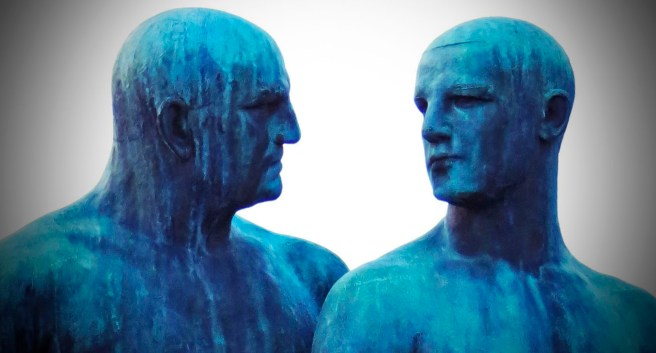
A tweet from a colleague affected me this week. The subject was stigma in substance use disorders and he related how, at the funeral of a relative who had died very young from a heroin overdose, a family member callously slandered the dead man and skillfully ‘othered’ him. The message was ‘he was not at all like us’.
This technique of labelling, blaming, applying stereotypes and stripping those with substance use disorders of their humanity – their sameness to everyone else – might be an temporarily effective way of distancing oneself from the horror and pain of addiction and loss, but it is harmful to those struggling with substances, their families and, if truth be told, to the person using stigmatising language.
As a person with lived experience of substance use disorder and recovery, I’ve had my own share of stigmatisation. I’ve just written a book chapter about it. It diminishes you, discredits you and the discrimination that accompanies it has real-life effects. Often adding to self-stigmatisation, external forms of stigmatisation are pernicious and paralysing.
Two bits of research on stigma caught my eye recently. In the first[1], researchers compared public stigmatisation of those with alcohol use disorder with other mental health conditions.
They defined stigma ‘as a process in which people are firstly labelled and hereby assigned to an out-group, secondly subjected to stereotypes and prejudices, and thirdly exposed to discrimination and social distance.’
They found that ‘stigmatizing beliefs and behaviours toward people with alcohol use disorder were pervasive in the general population and usually more pronounced than toward persons with depression or schizophrenia.
More specifically, people with AUD tend to be perceived as more dangerous and more responsible for their condition, as well as being faced with a greater desire for social distance and a higher degree of acceptance of structural discrimination than people with substance-unrelated disorders.’
The findings threw up some challenges, as it’s all more complex than it seems. Framing alcohol use disorder as a mental illness seems to reduce the expression of anger in others, but increase the expression of fear.
The authors say: ‘If regarded as a stable and trait-like condition, related to assumptions on “bad character,” blame and feelings of anger might be less pronounced but fear and social exclusion nevertheless high.
Conversely, if regarded as a “bad behaviour”—that is, a state that needs to be overcome—moral judgments and blame of people with alcohol use disorder could be harsher, possibly leading to more discrimination and social exclusion.’
These dilemmas and seeming contradictions need more research, but what is clear is that those with alcohol use disorder are seen as more dangerous, more responsible for their condition and are more likely to experience distancing and discrimination than those with other mental health conditions.
The Norwegian research paper titled ‘Nothing to mourn, He was just a drug addict” – stigma towards people bereaved by drug-related death’[2] provoked the Twitter exchange I referred to above. If the first study appeals to the mind, then this is a study that goes straight to the heart and emotions. I felt angry and sad on reading it, but I’m glad I did. There are shared themes between the two.
Norway is producing a lot of impactful research at the moment. In this study, the researchers recruited 255 people who had lost a someone close to a drug-related death. Using both standardised and open-ended questions, they analysed person to person communications experienced by participants following bereavement.
Almost half of the participants ‘reported experiencing derogatory remarks from close/extended family and friends, work colleagues, neighbours, media/social media and professionals’. That’s right, when they were grieving, those closest to them made cruel, harsh comments when what they needed most was love, comfort and support.
The content of these remarks identified in the data was grouped into four themes:
- Dehumanising labelling
- Unspoken and implicit stigma
- Blaming the deceased
- The only and best outcome
I was told she was a fucking junky and a fucking whore who had not deserved to live. She should have been taken on the day she was born; she had no right to a life, and she used others’ tax money to get drugs, tricked men into giving her money by selling herself. Girls like that should die
Said about a woman’s 20 year-old daughter
More quotes:
It was a choice he made, so it was all his own fault
You are lucky to have been spared more anguish when he died
The death could not be such a big deal as he had never wanted to help himself.
Pretty heart-breaking.
One of the things that works best to tackle these kinds of attitudes is for those of us with lived experience to share our stories. Contact with those with lived experience has been shown to tackle stigma. The more that it can be seen that we are ordinary (actually, in terms of recovery – extraordinary) human beings, ‘the same as’ rather than ‘other’, the more we dissolve stigma, shame and discrimination. This is not always without risk though.
The researchers’ bottom line
Such communications were disgraceful and harsh, and contributed to marginalizing a group of grieving individuals who required support rather than being ostracised. Making people aware that stigma exists, increasing knowledge as to why it occurs and how it is transmitted in society can help remove the stigma
Continue the discussion on Twitter @DocDavidM
[1] Kilian, C., Manthey, J., Carr, S., Hanschmidt, F., Rehm, J., Speerforck, S. and Schomerus, G. (2021), Stigmatization of people with alcohol use disorders: An updated systematic review of population studies. Alcohol Clin Exp Res, 45: 899-911. https://doi.org/10.1111/acer.1459
[2] Kari Dyregrov & Lillian Bruland Selseng (2021) “Nothing to mourn, He was just a drug addict” – stigma towards people bereaved by drug-related death, Addiction Research & Theory, DOI: 10.1080/16066359.2021.1912327
Take 5 Spotlight is a series of brief articles that introduce you to members of our National Office team, and many other SMART-types, in a short & sweet way.
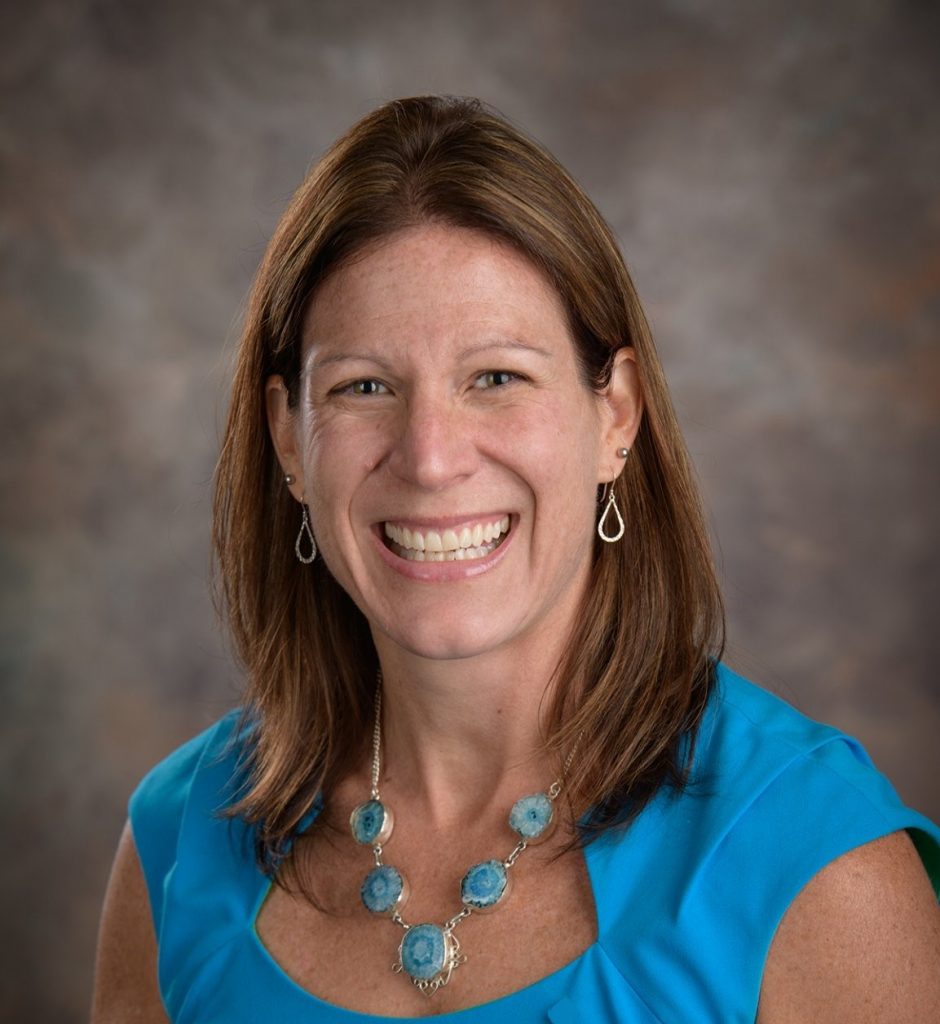
If you happen to partake in any of the following SMART activities, you’ve been touched by the work of SMART’s Marketing and Fundraising Manager Ali Adinaro: read blog, listened to podcasts, perused newsletters, opened emails, enjoyed social media posts, responded to fundraisers, and noticed website updates. Ali is involved in pretty much all things marketing and fundraising across the agency.
It started with a text. “I got a message from Mark [Ruth] saying, ‘let’s find a time to talk.’ A few days later we met for coffee and he told me about the position they were creating, and it sounded interesting. I went through the interview process and started on March 2, 2020.”
With her background in marketing, customer service, and administration, Ali was primed to hit the ground running. She just didn’t know she was going to be in multiple races at the same time. Oh well, you know what they say about giving more work to the busy person—it will surely get done.
Here are Ali’s responses to the Take 5 Spotlight questions:
- Are there tasks you perform regularly during your workday? I check blog comments, work on emails/newsletters, compile monthly analytics for the website, write copy for podcasts and videos, work on any upcoming events, and take minutes for the MARCOM and Financial Development committees. (Is that all? Ed.)
- What are a couple of the ways you interact and coordinate your job with other national office staff? The marketing team helps every department in some way, e.g., we create PowerPoint presentations for the Outreach and Training teams and draft emails/newsletters for the Volunteer team. We all work together.
- What is one of the ways that you think you personally make a difference at SMART? I share specific information that can help people. What they learn from listening to a podcast, reading a blog, or watching a video can change their lives.
- What is your message to all those dedicated SMART volunteers across the country? Your time and dedication to helping others on their path to recovery is worth thunderous applause!
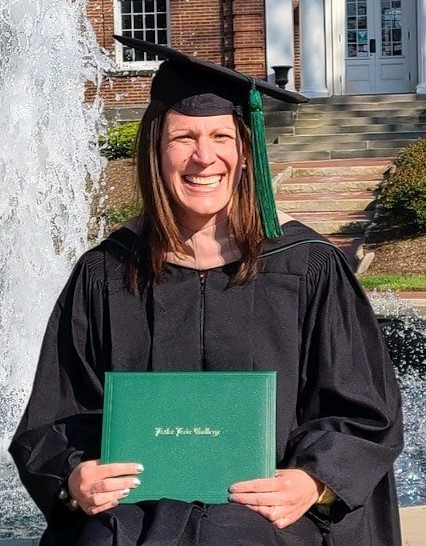
- What kinds of things are you interested in outside of work? I recently graduated with my Master’s in Business, so a few weeks ago I would have said homework because that’s all I was doing. My hobbies include traveling, running, puzzles, kayaking, jet skiing, and volunteering on non-profit boards. I also work nights at a local coffee shop, but I don’t drink coffee and had never made a pot before I started working there four years ago.
That’s it in a nutshell: from not knowing how to make a pot of coffee to running the java express. Ali Adinaro is asked and then delivers. Now equipped with an MBA, venture capitalists of all kinds need be worried for their jobs.
Learn more about the Take 5 Spotlight series and see others who have been profiled.
PLEASE NOTE BEFORE YOU COMMENT:
SMART Recovery welcomes comments on our blog posts—we enjoy hearing from you! In the interest of maintaining a respectful and safe community atmosphere, we ask that you adhere to the following guidelines when making or responding to others’ comments, regardless of your point of view. Thank you.
- Be kind in tone and intent.
- Be respectful in how you respond to opinions that are different than your own.
- Be brief and limit your comment to a maximum of 500 words.
- Be careful not to mention specific drug names.
- Be succinct in your descriptions, graphic details are not necessary.
- Be focused on the content of the blog post itself.
If you are interested in addiction recovery support, we encourage you to visit the SMART Recovery website.
IMPORTANT NOTE:
If you or someone you love is in great distress and considering self-harm, please call 911 for immediate help, or reach out to The National Suicide Prevention Hotline @800-273-8255, https://suicidepreventionlifeline.org/
We look forward to you joining the conversation!
*SMART Recovery reserves the right to not publish comments we consider outside our guidelines.*
Subscribe To Our Blog
Join our mailing list to receive the latest news and updates from the SMART Recovery Blog.
You have Successfully Subscribed!
Take 5 Spotlight is a series of brief articles that introduce you to members of our National Office team, and many other SMART-types, in a short & sweet way.
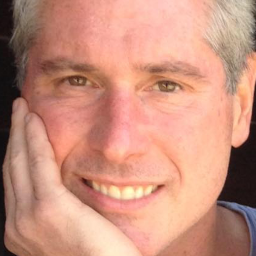
Quite simply, he’s Ted the video guy. His job is not accounting (though his videos raise money), answering the phones (though his videos cause people to call), or directly training facilitators (though his videos are used by the training team). Essentially, Ted just loves telling stories, “Especially when it involves telling emotionally compelling stories of personal triumphs and overcoming adversity.”
Ted (last name Perkins—not video guy) gains a lot of life satisfaction because his videos help people by providing information and inspiration. “I’m also very proud of the fact that [SMART meeting] facilitators use our Tips & Tools videos in their meetings, so I feel like my efforts help even more people in direct ways through them.”
SMART is glad Ted found a way to combine his love of stories and his skill in making videos. It’s easy to see the combination in action.
Here are Ted’s responses to the Take 5 Spotlight questions:
- Are there tasks you perform regularly during your workday? I constantly monitor SMART Recovery’s YouTube channel’s traffic and analytics to see how our video content is tracking. I also spend time looking for volunteers and SMART Recovery participants who may want to share their stories with us.
- What are a couple of the ways you interact and coordinate your job with other national office staff? Our National Office staff are highly skilled and know SMART Recovery inside and out. That deep knowledge and concern for the integrity of the SMART Recovery brand means that my creative work making videos has to be fully vetted by the national office before we post it. It’s the best way to ensure high quality and consistent messaging that is true to SMART Recovery principles. Even though I’m a facilitator and know quite a bit about SMART Recovery’s principles and the organization, there is always something new to learn from the staff.
- What is one of the ways that you think you personally make a difference at SMART? Coming from a for-profit and technology background, I think I offer new perspectives on possible ways to help the organization grow, and generate actionable ideas that can be implemented. The world changes so quickly. I try to stay up-to-speed on anything I can because you never know what new trend or new technology or new software, app or social media platform could benefit the organization.
- What is your message to all those dedicated SMART volunteers across the country? I want to tell all the volunteers that they are rock stars. I’m humbled by the work ethic and dedication of so many of them. It inspires me to be a better facilitator and help SMART Recovery in any way I can.
- What kinds of things are you interested in outside of work? I like to play squash (very East Coast sport I know!), and swim, and I like to cook gourmet meals. On weekends I go mountain-biking. I’m an avid reader and enjoy learning new things about any subject whenever I can.
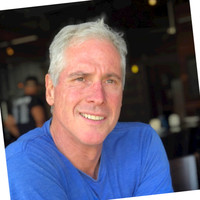
The next time you are watching a SMART video, rest assured that Ted Perkins crafted the story with an eye on clear communication of information and a flair for storytelling. It’s a combination that serves SMART in an excellent fashion, and it’s easy to see.
Learn more about the Take 5 Spotlight series and see others who have been profiled.
PLEASE NOTE BEFORE YOU COMMENT:
SMART Recovery welcomes comments on our blog posts—we enjoy hearing from you! In the interest of maintaining a respectful and safe community atmosphere, we ask that you adhere to the following guidelines when making or responding to others’ comments, regardless of your point of view. Thank you.
- Be kind in tone and intent.
- Be respectful in how you respond to opinions that are different than your own.
- Be brief and limit your comment to a maximum of 500 words.
- Be careful not to mention specific drug names.
- Be succinct in your descriptions, graphic details are not necessary.
- Be focused on the content of the blog post itself.
If you are interested in addiction recovery support, we encourage you to visit the SMART Recovery website.
IMPORTANT NOTE:
If you or someone you love is in great distress and considering self-harm, please call 911 for immediate help, or reach out to The National Suicide Prevention Hotline @800-273-8255, https://suicidepreventionlifeline.org/
We look forward to you joining the conversation!
*SMART Recovery reserves the right to not publish comments we consider outside our guidelines.*
Subscribe To Our Blog
Join our mailing list to receive the latest news and updates from the SMART Recovery Blog.
You have Successfully Subscribed!
Take 5 Spotlight is a series of brief articles that introduce you to members of our National Office team, and many other SMART-types, in a short & sweet way.
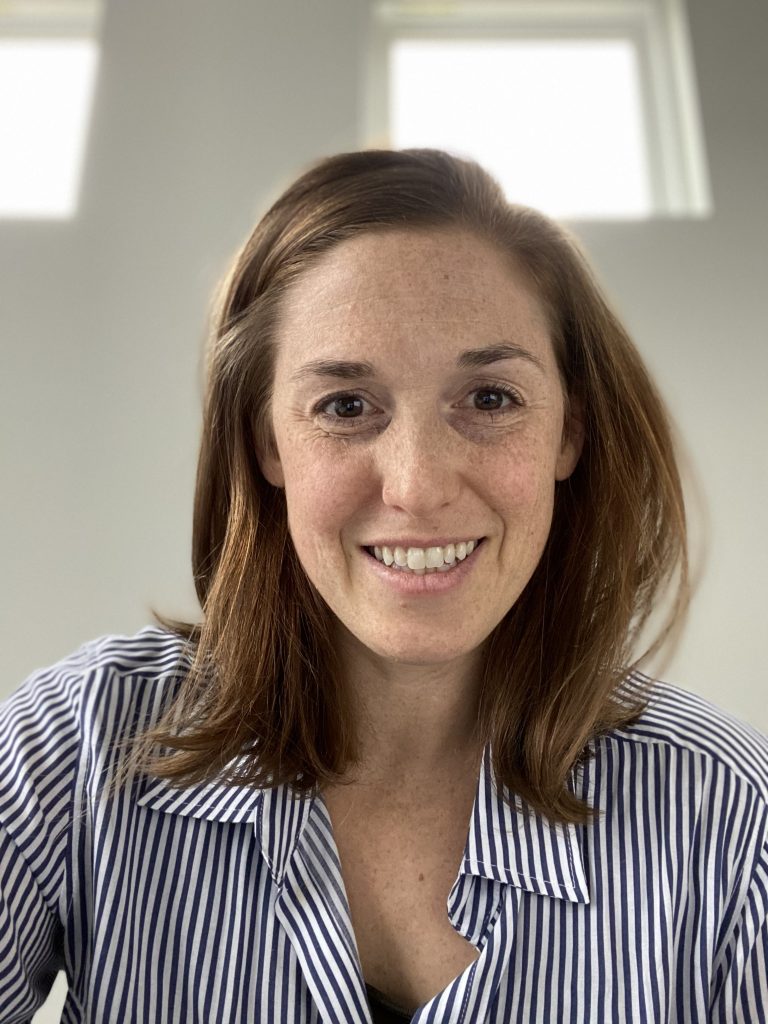
How is working with accountants like working with SMART Recovery employees? No, this is not setting up a punchline. SMART’s Director of Marketing, Anna Marie Murphy, provides a convincing answer. “My last job was with a CPA firm whose structure was really similar to SMART’s. Both have lots of representatives out in the community who need support promoting services and succeed best when there is a strong brand presence behind them, training resources available, and good materials they can share.” In other words, a great marketing team working on their behalf.
For the last 15 years Anna Marie has worked in marketing, and, after working three years in a part-time position with SMART, has been SMART’s marketing guru since January. That essentially means keeping a watchful eye over the overall brand. “…[F]rom the website, blog, social media posts, and emails… our [team] is included in most projects and conversations. Marketing takes almost everything we do and say and makes it look and sound snazzy.”
Anna Marie says she takes pride in using her skills for such an amazing cause. For its part, SMART benefits and enjoys her amazing skills applied for a cause we all take great pride in.
Here are Anna Marie’s responses to the Take 5 Spotlight questions:
- Are there tasks you perform regularly during your workday? I work very hard on a daily basis to strategize and implement improvements to our websites, content, emails, etc., that will help present SMART Recovery in the highest quality way and drive more people in need to SMART Recovery’s resources. We are growing at a rapid pace presently, and our online tools and messages need to continue evolving to reflect the caliber of organization that we are.
- What are a couple of the ways you interact and coordinate your job with other national office staff? My team works very closely with almost all of our departments – supporting them however we can! Preparing for presentations, launching new meetings, training programs, publications, fundraisers, helping with communications and making resources available to our volunteers and more.
- What is one of the ways that you think you personally make a difference at SMART? I have a specific passion for the content that we create and share through our website, blogs, podcasts, videos, social media and emails. I’m working very hard to diversify the audiences we speak to, knowing that addiction doesn’t discriminate. I want our content to speak meaningfully to all the different communities of people who use our program.
- What is your message to all those dedicated SMART volunteers across the country? I see our volunteers as an extension of my department! And I am so appreciative for the hard work you put in as our “boots on the ground.” I promise to continue working hard to provide additional resources to support you and make your efforts easier.
- What kinds of things are you interested in outside of work? I have a husband and two kids who are my whole world! We spend a lot of time outside hiking and looking for birds, salamanders, and critters. I also have a passion for fitness and nutrition and can often be found bending someone’s ear about what they’re eating and how they’re feeling.
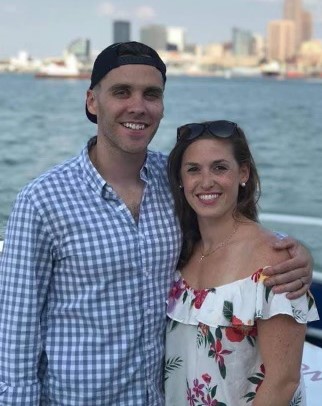
With a match made for excellent marketing, Anna Marie Murphy is a strong part of the SMART team. Her impact ripples from the National Office across the whole country. But she doesn’t have to hike to get it there; it spreads far and wide along the digital highway at web-speed.
Learn more about the Take 5 Spotlight series and see others who have been profiled.
PLEASE NOTE BEFORE YOU COMMENT:
SMART Recovery welcomes comments on our blog posts—we enjoy hearing from you! In the interest of maintaining a respectful and safe community atmosphere, we ask that you adhere to the following guidelines when making or responding to others’ comments, regardless of your point of view. Thank you.
- Be kind in tone and intent.
- Be respectful in how you respond to opinions that are different than your own.
- Be brief and limit your comment to a maximum of 500 words.
- Be careful not to mention specific drug names.
- Be succinct in your descriptions, graphic details are not necessary.
- Be focused on the content of the blog post itself.
If you are interested in addiction recovery support, we encourage you to visit the SMART Recovery website.
IMPORTANT NOTE:
If you or someone you love is in great distress and considering self-harm, please call 911 for immediate help, or reach out to The National Suicide Prevention Hotline @800-273-8255, https://suicidepreventionlifeline.org/
We look forward to you joining the conversation!
*SMART Recovery reserves the right to not publish comments we consider outside our guidelines.*
Subscribe To Our Blog
Join our mailing list to receive the latest news and updates from the SMART Recovery Blog.
You have Successfully Subscribed!
Take 5 Spotlight is a series of brief articles that introduce you to members of our National Office team, and many other SMART-types, in a short & sweet way.
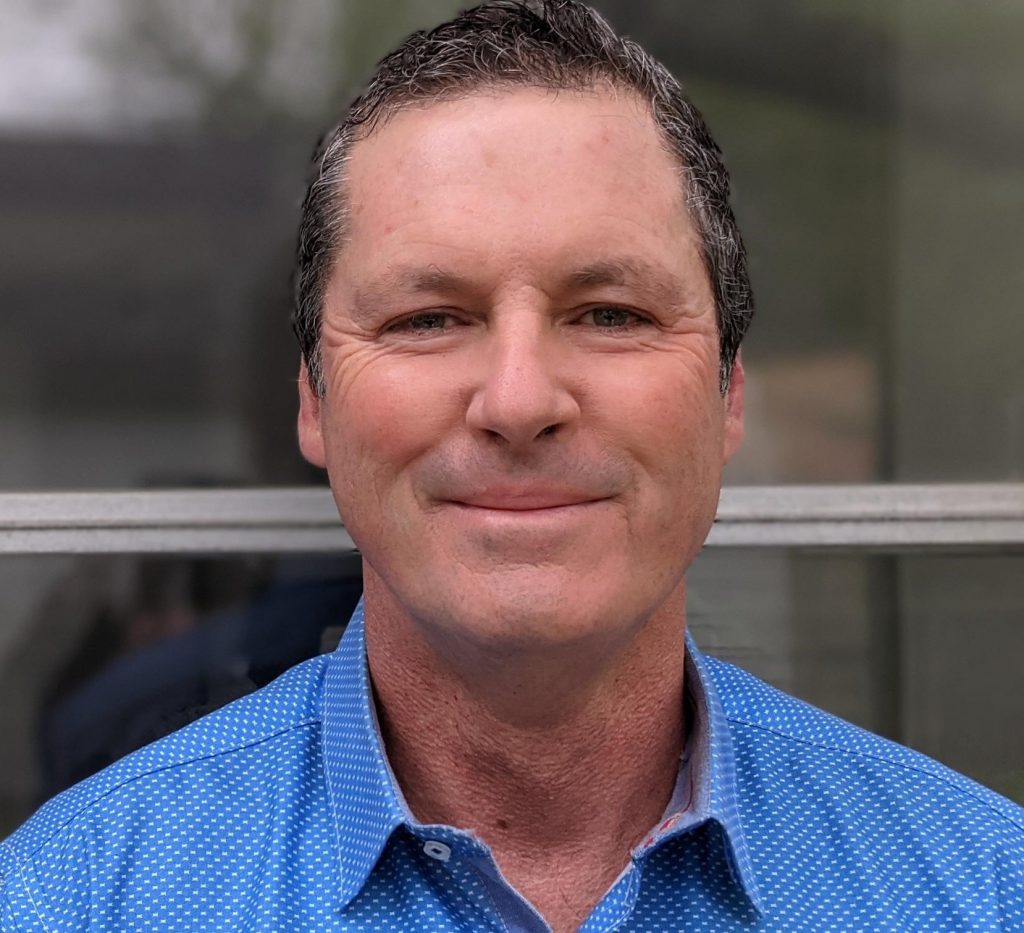
Talk about the right place at the right time. When Luke Frazier, SMART’s Communications Consultant, was sitting in a crowded coffee shop he was overheard talking about the kind of communications work he was doing. The person who overheard him happened to work for SMART Recovery, and they happened to be looking for someone to help with communications. Luke says, “I wasn’t even planning to go to that coffee shop. My schedule changed and I ended up there.”
Luke immediately felt that SMART was a cause he wanted to help, and for the past 18 months he has done so. “I do things like write press releases and advertising copy, draft and edit documents, host podcasts, and basically get the word out about how great SMART is in any way possible.” Something that he says is challenging at times but worth the effort to make sure those battling addiction know about this pathway to recovery.
With a background that includes broadcasting, public relations, and nonprofit management, Luke brings a wide range of skills to spreading SMART’s message of recovery. He also believes that word of mouth advertising, especially when overheard by someone, is a great way to communicate.
Here are Luke’s responses to the Take 5 Spotlight questions:
- Are there tasks you perform regularly during your workday? I am writing something about SMART every day, it just depends on who needs help and what specific information about SMART they are trying to communicate. I also keep my eye out for any press coverage and follow-up as necessary.
- What are a couple of the ways you interact and coordinate your job with other national office staff? Well, there are many ways I interact with SMART staff on a regular basis. After I do an initial draft of an announcement, or part of a mass email, I’ll get it in front of the appropriate person or persons for response. Then I take it and do it again, and sometimes again after that. I also work closely with the entire Marcom team writing web content and recording podcasts.
- What is one of the ways that you think you personally make a difference at SMART? A well-crafted piece of writing carries a clear message and so it has a positive impact—hopefully causing someone to do something like take advantage of what SMART has to offer or tell others about it. I also think a great podcast interview really gets the SMART message across.
- What is your message to all those dedicated SMART volunteers across the country? Keep believing in what you’re doing, it’s worth it! And make sure to ask me for help getting the word out, I really enjoy doing it!
- What kinds of things are you interested in outside of work? I love going to the woods and just enjoying the quiet. On the other hand, I enjoy lots of different kinds of music, played loud. I’m also an avid reader and always up for a road trip to the beach (lake or ocean).
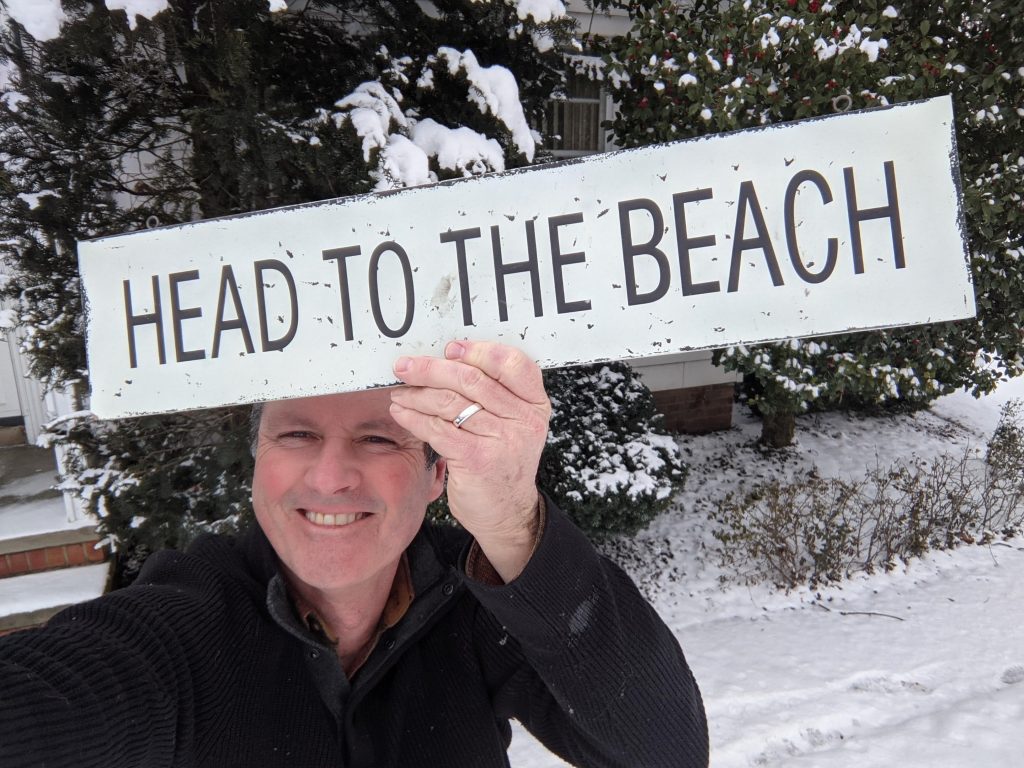
One thing is clear about Luke Frazier’s communications work for SMART Recovery: he’s willing to try to carry the message in whatever way works. It’s obvious he enjoys spreading the word about how SMART can help, and you might just find him in a coffee shop one day, talking about it.
Learn more about the Take 5 Spotlight series and see others who have been profiled.
PLEASE NOTE BEFORE YOU COMMENT:
SMART Recovery welcomes comments on our blog posts—we enjoy hearing from you! In the interest of maintaining a respectful and safe community atmosphere, we ask that you adhere to the following guidelines when making or responding to others’ comments, regardless of your point of view. Thank you.
- Be kind in tone and intent.
- Be respectful in how you respond to opinions that are different than your own.
- Be brief and limit your comment to a maximum of 500 words.
- Be careful not to mention specific drug names.
- Be succinct in your descriptions, graphic details are not necessary.
- Be focused on the content of the blog post itself.
If you are interested in addiction recovery support, we encourage you to visit the SMART Recovery website.
IMPORTANT NOTE:
If you or someone you love is in great distress and considering self-harm, please call 911 for immediate help, or reach out to The National Suicide Prevention Hotline @800-273-8255, https://suicidepreventionlifeline.org/
We look forward to you joining the conversation!
*SMART Recovery reserves the right to not publish comments we consider outside our guidelines.*
Subscribe To Our Blog
Join our mailing list to receive the latest news and updates from the SMART Recovery Blog.
You have Successfully Subscribed!
